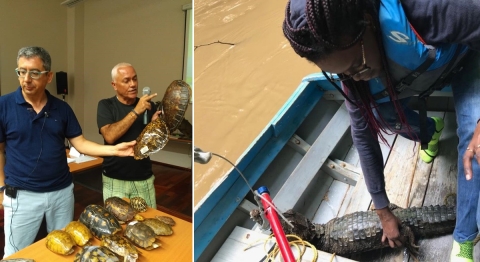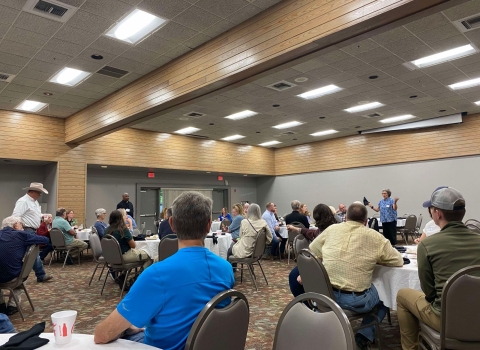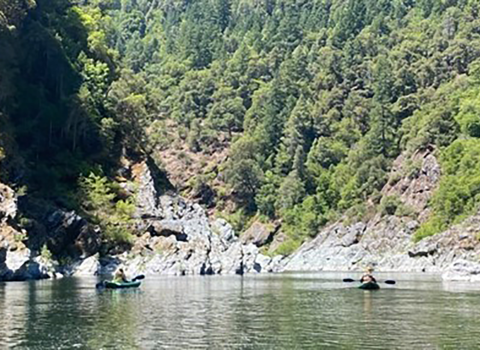CITES, the Convention on International Trade in Endangered Species of Wild Fauna and Flora, is a key conservation tool for plants and animals impacted by both legal and illegal trade. We at the U.S. Fish and Wildlife Service know, however, that the treaty is only as effective as the ability of member countries to implement it.
Our International Affairs Program, home to the U.S. CITES Management and Scientific Authorities, has long recognized the importance of strengthening CITES, in particular in countries with high biodiversity but lacking in capacity to effectively implement the treaty and combat wildlife trafficking.
In 2019, our Combating Wildlife Trafficking Program started collaborating with the U.S. Agency for International Development (USAID) West Africa Biodiversity and Climate Change Program to provide scholarships and technical support to the CITES Masters Degree program offered at the International University of Andalucía in Baeza, Spain.
Our initial funding supported students from Latin America and the Caribbean, while the USAID program supported for students from West Africa. In addition to scholarships, our staff contributed as academic guest lecturers and advisers, working collaboratively with students and their respective CITES Authorities to develop projects in alignment with the needs of their home countries. The scholars produced such theses as a population assessment of Guyana’s CITES-listed black caiman, an analysis of the regeneration capability of Belize’s threatened Rosewood tree, and an assessment of CITES implementation in Trinidad and Tobago.
This week, wildlife professionals from around the world are meeting in Accra, Ghana, for a four-day workshop before they travel to Spain as part of the most recent CITES Masters Course cohort. This year, we are partnering with the Department of the Interior’s International Technical Assistance Program to support students from Central and East Africa, regions where we have more than three decades of experience working with partners to secure species and habitats and strengthen capacity for conservation. Through its West Africa Biodiversity and Low Emissions Development Program, USAID is again supporting students from West Africa, while providing technical support on communications to the entire cohort.
Graduates of the CITES Masters Course have become CITES leaders and advocates for wildlife policy in their home governments, and we are excited to see what lies ahead for these incoming students. We look forward to learning from each other, continuing to collaborate throughout our conservation careers, and collectively finding solutions to more effectively manage natural resources and combat the illicit wildlife trade.



